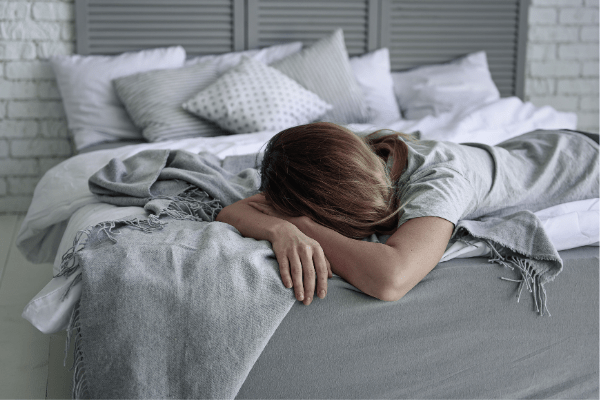Low sexual desire in women can cause distress in those who experience it.
In fact, in 2020, a study found that about 10 per cent of women aged between 18 and 39 experienced low libido. Currently in Australia, there is no approved treatment for these women to improve their low sex drive.
But there’s hope. A nasal spray is being trialed on 480 women aged between 21 and 50 for women who struggle with low sex drive.
Professor Susan Davis, Director of the Women’s Health Research Program at Monash University believes the test will offer women a chance at tackling the issue concretely.
“When women go to their doctor and they say they’ve lost interest in sex and it’s affecting them and their relationship and their wellbeing, they’re often too quickly dismissed,” she said. “They are told it’s because they’re working and they’ve got kids and they’ve got stress and not sleeping.”
Professor Davis believes the answer may lie in a molecule called BP101.
“This molecule acts within the central brain pathways, particularly what we call the GABA pathway that influences sexual behaviour,” she said.
The molecule is delivered through the spray to the nerves in the nasal cavity, then into the brain.
“This molecule has been investigated in terms of its safety,” Professor Davis added. And so far, so good. More than 200 women have already used the spray in a trial of the product, where it was found to be safe and effective.
“We have treatments for male sexual dysfunction, we have none for female sexual dysfunction in premenopausal women,” said Professor Davis.
“Low libido can include absence of sexual thoughts or fantasies, loss of desire for, or interest in sexual activity and loss of response to a partner initiating sexual activity,” according to the study’s authors. “For many women this can cause anxiety, frustration, guilt or sadness.”
Low sexual desire and sexual dysfunction increases with age. Roughly one in three women aged between 40 to 65 experience low libido.
“The impact on their psychological wellbeing is as severe as having a chronic condition like type 2 diabetes or severe lower back pain,” Professor Davis added.
Some women are diagnosed with Hypoactive Sexual Desire Disorder/Dysfunction (HSDD), which is when the loss of sexual desire is so severe that it causes personal distress. Roughly 20 percent of men and 33 percent of women are affected by this disorder.
HSDD is diagnosed only once other potential factors including depression, relationship issues and discomfort with sex have been ruled out.
According to HealthEngine, the current definition of HSDD is based on the traditional model of human sexual response.
“It is important to note that this model derived from studies on predominantly male subjects, emerging from the work of William Masters and Virginia Johnson, and later expanded by Helen Singer Kaplan.”

